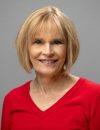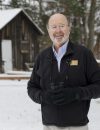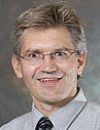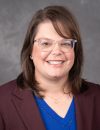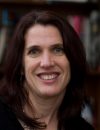The call came during Amy Jochsett Perez’s most difficult semester. It was April 2020 and Perez, a junior studying nursing at UW-Madison, was weighing whether to drop out of school. Seeing the stress that nurses were under during the pandemic made her question her career choice.
UW In The News
-
George Floyd’s murder fueled the Black Lives Matter movement. Activists are clashing over what comes next
Pamela Oliver, a professor emerita of sociology at the University of Wisconsin at Madison who has studied protest movements for 40-plus years, said the generations-old struggle for Black rights had gained significant momentum until the events of 9/11 diverted national attention. Activists have been trying to make up lost ground ever since, she said – including the additional loss of some white allies in 2016 after the fatal ambush of five police officers in Dallas by Micah Johnson, a Black man.
-
Scientists are zeroing in on when the Earth’s plates started to move
That subduction process operates like a “conveyor belt,” recycling and exchanging material and volatile chemicals between the surface of Earth and deep within it, says Ann Bauer, a geochemist at the University of Wisconsin-Madison.
-
COVID-19: Cattle farmers may be immune to the coronavirus
Dr. Christopher Olsen at the School of Medicine and Public Health at UW-Madison said, “The virus SARS-CoV-2 that causes COVID-19 disease is only distantly related to common bovine coronaviruses. While not impossible for there to be some level of cross-recognition of this new virus by antibodies to bovine coronavirus (they are in the same overall subsection of the coronavirus family), I would expect it to be very limited.”
-
How the pandemic has upended the lives of working parents
Mothers have suffered most. Ben Etheridge and Lisa Spantig of the University of Essex found that in the first months of Britain’s lockdown women’s well-being dropped twice as much as men’s. That some friendships have withered and others have never bloomed could have a lasting impact on new mothers in particular, predicts Margaret Kerr of the University of Wisconsin-Madison.
-
Children and the Covid Vaccine: What Parents Need to Know
Dr. James Conway, a pediatric infectious disease specialist at the University of Wisconsin School of Medicine and Public Health who oversees vaccination programs there, said vaccines will likely be available for 5- to 11-year-olds in late 2021, and for babies over 6 months, toddlers and preschoolers in early 2022.
-
Why Do Police Keep Shooting Into Moving Cars?
“Police officers are trained that if somebody’s in a vehicle, you’re trying to stop them, and they’re noncompliant, the car is a weapon, and therefore this makes the person armed,” says John P. Gross, a clinical associate law professor at the University of Wisconsin who has written on police and vehicles.
-
Opinion: Here’s how to tell if this spurt of inflation is here to stay
So far, the actual growth in the price level has been temporary. Expectations of inflation remain muted because either the anticipated output gap or the responsiveness of inflation to the output gap are thought to be small, inflation expectations remain well-anchored, or all three.
Menzie Chinn is a professor of public affairs and economics at the Robert M. La Follette School of Public Affairs at the University of Wisconsin-Madison. His research examines the empirical and policy aspects of macroeconomic interactions between countries.
-
“Wearable Tracy” and Connections Forged Through Funky Hats
The two women met while Kim was taking a “Design Thinking” workshop at the University of Wisconsin; Brandenbug, an anthropologist, gave a lecture about empathy and creativity, and the material so stuck with Kim that she struck up a conversation that led to a lasting friendship.
-
‘Shape’ Makes Geometry Entertaining. Really, It Does.
Ellenberg, a professor at the University of Wisconsin–Madison, is rather spectacular at this sort of thing. A seam in his narrative is a critique of how math, and especially geometry, has been taught. (His strategy for success in teaching is to employ more strategies; multiply approaches so students might find one that works for them.) He also takes a few well-aimed swipes at current depictions of the campus culture wars. The “cosseted” American college student might have launched a thousand Substacks, but have you heard of the “Conic Sections Rebellion”? Some 44 students, including the son of Vice President John C. Calhoun, were expelled from Yale in 1830, for refusing to take a geometry exam.
-
Food giants accused of links to illegal Amazon deforestation | Amazon rainforest
“Allowing different properties operated by the same person or group to follow different rules opens a loophole that farmers can use to circumvent the soy moratorium,” said Lisa Rausch, a researcher at the University of Wisconsin.
-
Antarctica is headed for a climate tipping point by 2060, with catastrophic melting if carbon emissions aren’t cut quickly
While U.S. Secretary of State Antony Blinken draws attention to climate change in the Arctic at meetings with other national officials this week in Iceland, an even greater threat looms on the other side of the planet.
-
Great Lakes water levels drop 2020 record-breaking highs
Typically the Great Lakes follow a specific seasonal cycle, said Adam Bechle, a coastal engineering specialist with the University of Wisconsin Sea Grant Institute. The lakes bottom out in the winter when there’s more evaporation occurring as cold air moves in over the warmer water. Lake levels are highest during the summer, after snow melts and runs into them and rain falls.
-
Is this a new moment for prison education?
“I think everything seems to be aligning both in terms of the national interest in prison reform and prison education, changing rules about Pell Grants, increased awareness of racial discrimination, and I guess just a widespread understanding that change needs to happen,” said Emily Auerbach, founder and co-director of the Odyssey Project, which houses the University of Wisconsin at Madison’s prison education initiative, Odyssey Beyond Bars.
-
As the West Faces a Drought Emergency, Some Ranchers are Restoring Grasslands to Build Water Reserves
“The more you’ve allowed your grassland to invest in its roots, the better off it is going to be during a drought,” said Randy Jackson, a grassland ecologist and professor at the University of Wisconsin-Madison. Perennial plants—which stay in the ground year in and year out—continue to “photosynthesize and put their carbon and nutrients below ground, which is really their savings account.” In times of drought, it will draw more on the savings in the ground.
-
Why Liz Cheney Matters
Provisions that target heavily Democratic areas — like Georgia’s limits on drop boxes — are particularly blatant. “The typical response by a losing party in a functioning democracy is that they alter their platform to make it more appealing,” Kenneth Mayer, a political scientist at the University of Wisconsin, has told The Times. “Here the response is to try to keep people from voting. It’s dangerously antidemocratic.”
-
Keeping the Memory of 9/11 Alive at the Site Where Flight 93 Went Down
Jeremy Stoddard, a professor at University of Wisconsin-Madison, surveyed more than 1,000 middle and high school teachers in 2018 to find out how they approached teaching about Sept. 11 and the war on terror. About 130 history, government and social studies teachers said they had never taught students about Sept. 11.
-
Fact check: Census voting data isn’t proof of fraud in 2020 election
Barry Burden, professor of American politics and political methodology at the University of Wisconsin-Madison, told USA TODAY the discrepancy is “not a sign of fraud,” just a result of sampling error.
-
AAPI Month: What kids, parents should be reading
Leslie Bow, English and Asian American Studies professor at University of Wisconsin-Madison, says, “It’s important to expose children to racial diversity in children’s books because studies have shown that familiarity with children of color in stories reduces negative biases against racial groups.”
-
FDA clears the way for adolescents ages 12 to 15 to get vaccinated
According to 2019 U.S. Census Bureau estimates, people younger than 18 account for about 22 percent of the American population. That’s why “it is really important for kids to be included” in vaccination efforts, says Malia Jones, an associate scientist in health geography at the University of Wisconsin-Madison Applied Population Laboratory. Their inclusion is “good news for herd immunity.”
-
UW-Madison commencement returns thousands of graduates to Camp Randall Stadium
After a senior year challenged by the pandemic, UW-Madison’s Class of 2021 enjoyed a semblance of normalcy Saturday as the university held its first in-person commencement ceremony in a year and a half. Camp Randall Stadium was again the scene of smiling, robe-clad grads taking selfies with friends, jumping around and throwing mortarboards into the air.
-
That’s so Fetch: Wes Schroll, ‘unicorn’ CEO, to speak at Wisconsin Entrepreneurs Conference
The keynote speaker at next month’s Wisconsin Entrepreneurs Conference owes his $1 billion company, Fetch Rewards, to an idea that came to him when he was a University of Wisconsin-Madison soon-to-be sophomore learning to do his own grocery shopping.
-
Flight 93 families hope heroism award helps keep story alive
Jeremy Stoddard, a professor at the University of Wisconsin-Madison School of Education, has studied since 2003 how 9/11 and its aftermath are taught in middle and high schools around the country.“There hasn’t been a lot of good data on that, it’s very anecdotal,” Stoddard said.
-
For a Peek Inside Wisconsin’s Watery Past, Thank the Microbes
Knowing they had found something special, Gunderson and Meyer frantically shaved off slabs of the fossil-bearing rock, preventing them from being pulverized in the pursuit of limestone. They donated their find to the University of Wisconsin–Madison Geology Museum, where thousands of Waukesha specimens now fill drawer after drawer.
-
Global heating pace risks ‘unstoppable’ sea level rise as Antarctic ice sheet melts
Andrea Dutton, an expert in sea level rise at University of Wisconsin–Madison, who was a co-author, said the paper “addresses an important and pressing question” of what the Paris climate targets will mean for future sea level rise.
-
World risks runaway Antarctic ice melt if Paris targets not met
What they’re saying: “This study is a stark reminder that the fuse is short for deep and sustained cuts to greenhouse gas emissions,” study coauthor Andrea Dutton of the University of Wisconsin-Madison, said via email.
-
Antarctica’s ice could cross this scary threshold within 40 years
“Once you hit this threshold, you can’t go back,” says study co-author Andrea Dutton, a sea level researcher at the University of Wisconsin-Madison. “You’re committed. That’s the big takeaway.”
-
COVID-19 nearly caused UW-Madison graduate to drop out; a painful loss brought her back
-
Opinion: How President Biden’s rescue plan could help poor kids in Wisconsin
Written by Tim Smeeding, the Lee Rainwater Distinguished Professor of Public Affairs and Economics at the La Follette School of Public Affairs and former director of the Institute for Research on Poverty at the University of Wisconsin-Madison.
-
Invasive “jumping” worms are here to stay
The Amynthas species we have in the US (most commonly Amynthas agrestis and Amynthas tokioensis) are primarily from Japan and the Korean peninsula. In their home habitats, they evolved along with the local ecosystems — and the ecosystems along with them. But here, “just like any other invasive species that are displaced into a brand new habitat that might not have controls, they’re able to take advantage of that and go gangbusters,” says Brad Herrick, an ecologist at the University of Wisconsin-Madison Arboretum.
-
Meghan Markle Wrote a Children’s Book—Here’s Everything We Know About The Bench
That perspective is inevitably important to the many, many multicultural households across America. The children’s book industry has a noted lack of diversity: According to the University of Wisconsin-Madison’s Cooperative Children’s Book Center, only 30% of titles in 2020 featured racially diverse characters. “My hope is that The Bench resonates with every family, no matter the makeup, as much as it does with mine,” Meghan says.
- Newer stories
- Page 42 of 140
- Older stories
Featured Experts
Kathleen Glass: Food safety
Food is an integral part of Thanksgiving. And who doesn't love leftovers? But after how long should you leave those… More
Cecelia Klingele: Body-worn cameras by police
Madison Police Chief Shon Barnes is requesting that the city fund widespread use of body cameras for officers in the… More
Stanley Temple: Fall phenology
The days have finally started getting cooler and we all know winter awaits. Stanley Temple, an expert on birds, wildlife, endangered… More
Jonathan Temte: The seasonal flu shot
Family medicine professor Jonathan Temte is available to discuss this year's updated seasonal flu shot and flu prevention and control. More
Noelle LoConte: Pancreatic Cancer Awareness Month
Pancreatic cancer is one of the most difficult cancers to prevent, diagnose or treat. Earlier this month, music legend Quincy… More
Alvin Thomas: Movember and Men's Health Month
You might see more facial hair this month as Movember goes into full effect, drawing awareness toward men's health. Alvin… More
Dominique Brossard: Vaccine hesitancy
With a new administration poised to take power in January, a change in policy regarding vaccines may also be on the way.… More

